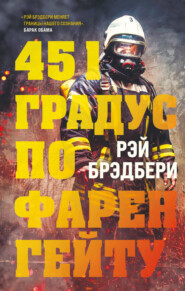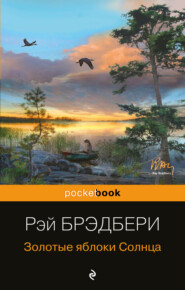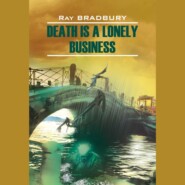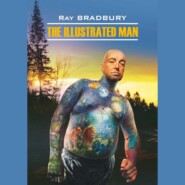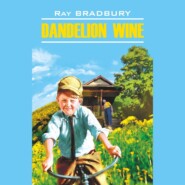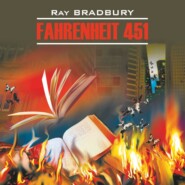По всем вопросам обращайтесь на: info@litportal.ru
(©) 2003-2024.
✖
Ray Bradbury Stories Volume 1
Настройки чтения
Размер шрифта
Высота строк
Поля
I lengthened my bones, put flesh on them, changed my young mind for an older one, threw away clothes as they no longer fitted, shifted from grammar to high school, to college books, to law books. And then there was a young woman in Sacramento. I knew her for a time, and we were married.
I continued my law study. By the time I was twenty-two, I had almost forgotten what the East was like.
Margaret suggested that our delayed honeymoon be taken back in that direction.
Like a memory, a train works both ways. A train can bring rushing back all those things you left behind so many years before.
Lake Bluff, population ten thousand, came up over the sky. Margaret looked so handsome in her fine new clothes. She watched me as I felt my old world gather me back into its living. She held my arm as the train slid into Bluff Station and our baggage was escorted out.
So many years, and the things they do to people’s faces and bodies. When we walked through the town together I saw no one I recognized. There were faces with echoes in them. Echoes of hikes on ravine trails. Faces with small laughter in them from closed grammar schools and swinging on metal-linked swings and going up and down on teeter-totters. But I didn’t speak. I walked and looked and filled up inside with all those memories, like leaves stacked for autumn burning.
We stayed on two weeks in all, revisiting all the places together. The days were happy. I thought I loved Margaret well. At least I thought I did.
It was on one of the last days that we walked down by the shore. It was not quite as late in the year as that day so many years before, but the first evidences of desertion were coming upon the beach. People were thinning out, several of the hot dog stands had been shuttered and nailed, and the wind, as always, waited there to sing for us.
I almost saw Mama sitting on the sand as she used to sit. I had that feeling again of wanting to be alone. But I could not force myself to speak of this to Margaret. I only held on to her and waited.
It got late in the day. Most of the children had gone home and only a few men and women remained basking in the windy sun.
The life-guard boat pulled up on the shore. The life-guard stepped out of it, slowly, with something in his arms.
I froze there. I held my breath and I felt small, only twelve years old, very little, very infinitesimal and afraid. The wind howled. I could not see Margaret. I could see only the beach, the life-guard slowly emerging from the boat with a gray sack in his hands, not very heavy, and his face almost as gray and lined.
‘Stay here, Margaret,’ I said. I don’t know why I said it.
‘But, why?’
‘Just stay here, that’s all—’
I walked slowly down the sand to where the life-guard stood. He looked at me.
‘What is it?’ I asked.
The life-guard kept looking at me for a long time and he couldn’t speak. He put the gray sack down on the sand, and water whispered wet up around it and went back.
‘What is it?’ I insisted.
‘She’s dead,’ said the life-guard quietly.
I waited.
‘Funny,’ he said, softly. ‘Funniest thing I ever saw. She’s been dead. A long time.’
I repeated his words.
He nodded. ‘Ten years, I’d say. There haven’t been any children drowned here this year. There were twelve children drowned here since 1933, but we recovered all of them before a few hours had passed. All except one, I remember. This body here, why it must be ten years in the water. It’s not – pleasant.’
I stared at the gray sack in his arms. ‘Open it.’ I said. I don’t know why I said it. The wind was louder.
He fumbled with the sack. ‘The way I know it’s a little girl, is because she’s still wearing a locket. There’s nothing much else to tell by—’
‘Hurry, man, open it!’ I cried.
‘I better not do that,’ he said. Then perhaps he saw the way my face must have looked. ‘She was such a little girl—’
He opened it only part way. That was enough.
The beach was deserted. There was only the sky and the wind and the water and the autumn coming on lonely. I looked down at her there.
I said something over and over. A name. The life-guard looked at me. ‘Where did you find her?’ I asked.
‘Down the beach, that way, in the shallow water. It’s a long long time for her, ain’t it?’
I shook my head.
‘Yes, it is. Oh God, yes it is.’
I thought: People grow. I have grown. But she has not changed. She is still small. She is still young. Death does not permit growth or change. She still has golden hair. She will be forever young and I will love her forever, oh God, I will love her forever.
The life-guard tied up the sack again.
Down the beach, a few moments later, I walked by myself. I stopped, and looked down at something. This is where the life-guard found her, I said to myself.
There, at the water’s edge, lay a sand-castle, only half-built. Just like Tally and I used to build them. She half and I half.
I looked at it. I knelt beside the sand-castle and saw the little prints of feet coming in from the lake and going back out to the lake again and not ever returning.
Then – I knew.
‘I’ll help you to finish it,’ I said.
I did. I built the rest of it up very slowly, then I arose and turned away and walked off, so as not to watch in crumble in the waves, as all things crumble.
I walked back up the beach to where a strange woman named Margaret was waiting for me, smiling …
The Coffin (#ulink_e8448e38-5340-5eff-b374-0b379cf33abd)
There was any amount of banging and hammering for a number of days: deliveries of metal parts and oddments which Mr Charles Braling took into his little workshop with a feverish anxiety. He was a dying man, a badly dying man, and he seemed to be in a great hurry, between racking coughs and spittlings, to piece together one last invention.
‘What are you doing?’ inquired his younger brother, Richard Braling. He had listened with increasing difficulty and much curiosity for a number of days to that banging and rattling about, and now he stuck his head through the work-room door.
‘Go far far away and let me alone,’ said Charles Braling, who was seventy, trembly and wet-lipped most of the time. He trembled nails into place and trembled a hammer down with a weak blow upon a large timber and then struck a small metal ribbon down into an intricate machine, and, all in all, was having a carnival of labor.
Richard looked on, bitter-eyed, for a long moment. There was a hatred between them. It had gone on for some years and now was neither any better nor any worse for the fact that Charlie was dying. Richard was delighted to know of the impending death, if he thought of it at all. But all this busy fervor of his old brothers stimulated him.
‘Pray tell,’ he said, not moving from the door.
‘If you must know,’ snarled old Charles, fitting in an odd thingumabob on the box before him, ‘I’ll be dead in another week and I’m – I’m building my own coffin!’






